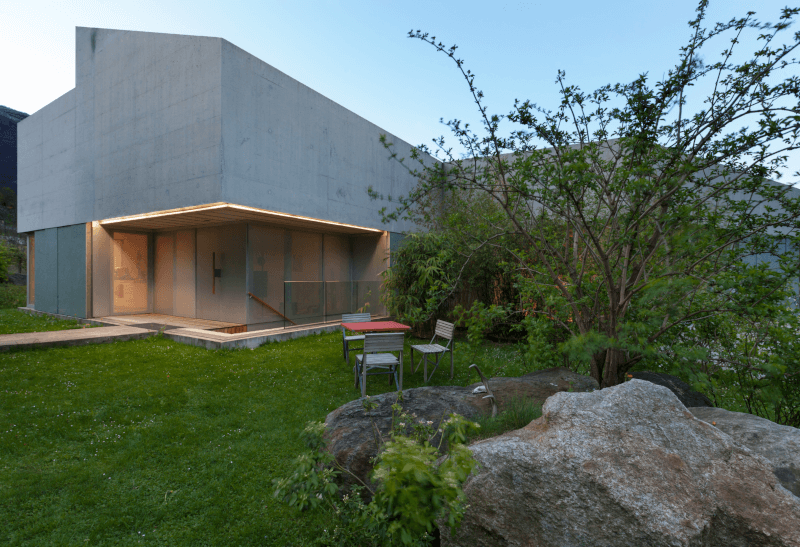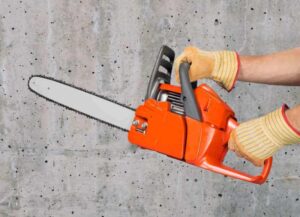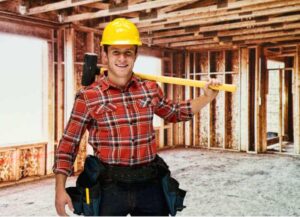Concrete houses have become a popular option for homeowners over the years. They aren’t quite as common as brick, and not everything thinks to consider a concrete house. So, let’s talk about if buying a concrete house is worth it.
Concrete houses are more expensive to build but require less maintenance over time and are more durable than other house materials. Concrete houses are also less expensive to heat and cool and have a clean, modern look. They’re a great investment for long-lasting home, with a life span of 60+ years
Let’s talk about why a concrete house could be worth your time.
What Are the Benefits of a Concrete House?
Concrete homes are a modern spin on the traditional home that may be customized in a variety of ways. But it’s not all about appearances. Concrete homes have a number of advantages that may influence your decision to use this material.
Concrete can be easily made for your house
When you use concrete to build a new house, you’re simply utilizing resources that are plentiful and easy to obtain. Limestone is the primary raw material for cement in concrete, and it is easily one of the most abundant minerals on the planet. This will mean there is plenty of concrete to go around to build your house. In this time, when we are experiencing other building material shortages, investing in a concrete house could be a great idea. You shouldn’t experience great delays in your building process because you are waiting on materials. Plus, concrete is often paired with steel framing, another material that is popular and can be sourced easily.
Concrete provides a long-lasting residence
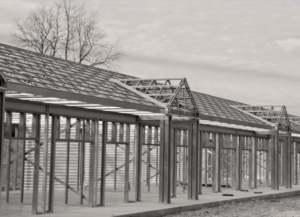 The use of concrete in the construction of your home will ensure a durable house with a long lifespan. Concrete construction is long-lasting and will not rot, rust, or burn. They can last two to three times longer than other traditional structures. You can also render a concrete house. This is good because there is potential for render to increase the value of the house.
The use of concrete in the construction of your home will ensure a durable house with a long lifespan. Concrete construction is long-lasting and will not rot, rust, or burn. They can last two to three times longer than other traditional structures. You can also render a concrete house. This is good because there is potential for render to increase the value of the house.
Protection against pests
A concrete house doesn’t have many open spaces underneath walls or the foundation that allows access to termites or other insects. Pair this with steel frames and you have lots of protection against pests.
Lower heating and cooling costs
Concrete has a much greater and easier ability to absorb and retain heat than other building materials. As a result of the concrete’s natural thermal mass properties, you should expect significant savings in your heating and cooling expenses. The more concrete you use, the more benefits you’ll get. Homes with entire concrete foundations, walls, and floors are more likely to achieve more benefits rather than homes with only partial concrete. In addition, lighter-coloured concrete can reflect more solar radiation, keeping the home cooler in the summer. This is one of the biggest factors that make having a concrete house worth it.
What’s the downside to concrete houses?
With every good, there is always a bit of bad, and concrete houses are no exception. The first downside to a concrete house is the cost of building them. Concrete houses come with a much higher cost, but these prices do change frequently. This means it is hard to be sure of how much you will have to pay for a concrete house at any random time. But you can be sure that it will be more expensive than most other popular house options.
Another downside to concrete houses is that once they are built, it can be hard to reach the internal house systems. Some blocks may need to be cut and then fixed if problems occur with plumbing or wiring. But, with quality cutting tools, getting to the internal systems can be done in a clean manner. This allows a professional coverup of where the concrete was cut, making it appear as if nothing ever happened.
Over time, concrete blocks are also prone to being subject to water seepage. If you live in areas with high water levels and rainfall, your concrete house could have seepage as the years go on. Cement is a porous material that is both strong and solid. But water can eventually find its way through the pores of your wall and into your home. If you plan on building a concrete house, look into ways to moisture-proof concrete floors and walls.
How long do concrete houses last?
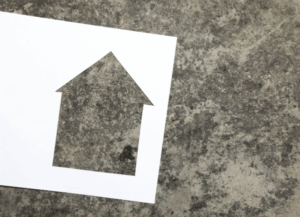 Because all concrete buildings appear the same to the untrained eye, it’s difficult to predict how long they’ll survive before requiring major structural repairs.
Because all concrete buildings appear the same to the untrained eye, it’s difficult to predict how long they’ll survive before requiring major structural repairs.
While some structures will remain for more than 50-60 years without problems, others will begin to show signs of wear and tear after only a few years. The foundation of concrete structures that have lasted 100 years, or more is deep and solid. They are built in-ground soil that has been tested and certified to sustain massive structures.
You want to ensure that you are getting a good foundation for a concrete home because this will be a defining factor in the house’s lifespan. A good foundation and supported concrete walls will see your house lasting potentially for over 100 years.
Are concrete houses better than other materials?
Concrete is a strong and durable building material, which can make it a better choice compared to other house materials such as timber. Pairing concrete with steel frames can create a very strong house. Adding on the thermal mass benefits that can save your heating and cooling costs increases the value of a concrete house. You can also have a very smooth and modern finish that adds to the curb appeal of the home. Not to mention that concrete houses are durable for wet ground that might surround the foundation.
Concrete houses are low maintenance compared to other house materials and are able to stand against a variety of climate conditions. This product can be reinforced with steel rebar for extra strength. While you have a higher initial building cost, you can save a lot of money by investing in a concrete house.
The greatest concrete house building should provide a high-performing, energy-efficient, long-lasting, and low-maintenance home for the homeowner. Furthermore, the concrete house must give outstanding indoor environmental quality and safety. These residences are cost-effective in the long run and have a beneficial environmental impact.
While you’re working with and thinking about concrete, do you know if you can use an angle grinder to level concrete? Do you know how to use a concrete core drill? We have a helpful guide to concrete core drills to help you out! For quality cutting and grinding tools, check out Paragon Tools Australia!

